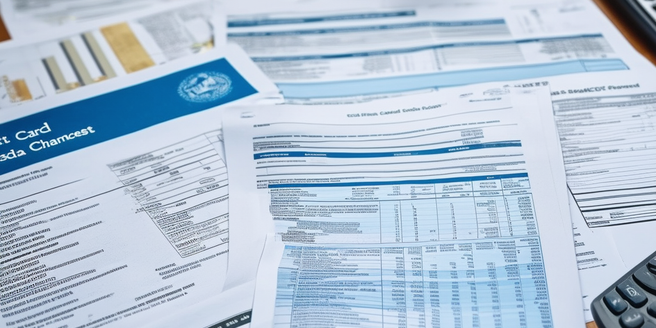
Understanding Credit Scores
Credit scores are integral in determining credit card eligibility. A higher credit score often translates to better credit card offers, including lower interest rates and higher credit limits. Lenders use these scores to assess the risk of lending to an individual. Regularly monitoring your credit report can also help you catch and correct errors that might negatively impact your score. Factors that influence your credit score include payment history, amounts owed, length of credit history, and new credit inquiries. It’s important to stay informed about your financial habits. Maintaining a healthy credit score by paying bills on time, reducing debt, and managing credit responsibly can greatly enhance your chances of qualifying for a credit card.
Income and Employment Verification
When applying for a credit card, issuers often require proof of stable income and employment. This verification helps them evaluate your ability to repay the credit. Documents such as pay stubs, tax returns, and bank statements are typically requested. It’s crucial to provide accurate and up-to-date information during this process. Maintaining good credit scores can also enhance your chances of approval. Lenders are looking for reassurance that you can manage the credit responsibly. In some cases, lenders may ask for references from your employer. Consistent employment and a steady income stream indicate financial stability, which is a crucial factor in the approval process. Freelancers and self-employed individuals might need to provide additional documentation to verify their income and business stability.
Debt-to-Income Ratio Analysis
A thorough analysis of your debt-to-income (DTI) ratio is essential during the credit card application process. The DTI ratio compares your monthly debt payments to your monthly gross income. Lenders use this ratio to assess your ability to manage additional debt. A lower DTI ratio indicates better financial health and an improved capacity to handle new credit. Conversely, understanding this metric can help you make more informed financial decisions. It is crucial to regularly review your DTI ratio as part of your overall financial health check. On the other hand, a higher DTI ratio could signal financial strain and reduce your chances of credit approval. To improve your DTI ratio, consider paying off existing debts and increasing your income.
Credit History Evaluation
Credit history evaluation involves a comprehensive review of your past credit behavior. Lenders check how you’ve managed previous credit accounts, including any late payments, defaults, or bankruptcies. A positive credit history showcasing responsible credit management can significantly boost your approval chances. Conversely, a poor credit history with numerous negative marks could hinder your application. It is essential to understand that your credit history reflects your financial habits and decisions over time. Maintaining a balanced credit utilization ratio is also crucial for a healthy credit score. To improve your credit history, paying off debts and avoiding new credit inquiries can be beneficial. Regularly monitoring and cleaning up your credit report can help present a better financial picture to potential lenders.
Existing Credit Card Accounts
Lenders also consider the status of your existing credit card accounts. Having multiple active credit cards with high balances can raise concerns about overextension. On the other hand, well-managed existing accounts with low balances and timely payments reflect financial responsibility. It’s important to regularly monitor your credit report for inaccuracies. Regular checks can help you stay on top of your financial health. Additionally, setting up alerts can ensure you never miss a payment. Closing unused credit card accounts can sometimes be beneficial, but it’s generally advised to keep them open as they contribute positively to your credit utilization ratio. Carefully managing your current accounts is key to qualifying for new credit lines.
